More than 200 types of viruses can cause a cold. Colds are most common in late winter and early spring. Colds develop over one or two days. Colds usually last a week or two.
Symptoms of a Cold
- Runny nose
- Red eyes
- Sneezing
- Sore throat
- Dry cough
- Headache
- General body aches
Reducing risks of getting a cold
- Wash your hands often with soap and water—especially in public places where the chance of catching cold is higher.
- Eat well and gets a lots of sleep.
- Keeps your hands away from your mouth, eyes, and nose.
- Cover your mouth and nose with your elbow or a handkerchief when you cough or sneeze.
- Cut back or stop smoking. Stay away from second-hand smoke when possible.
Treating a cold
- Get extra rest.
- Drink lots of fluids—water (hot or cold), tea, broth and soups.
- Use disposable tissues.
- Gargle with warm salty water if you have a sore throat.
- Increase the moisture in the air in your house. Use a humidifier in your bedroom and take long showers.
- If needed, take over-the-counter cold medication to help with symptoms. Always follow the instructions. Pills can have side effects, especially when too much is used.
- Do not give aspirin to anyone under 20 years old. It is linked to Reye syndrome, a serious illness that affects the liver and brain.
If a cold lasts longer than two weeks, visit your local health centre.



